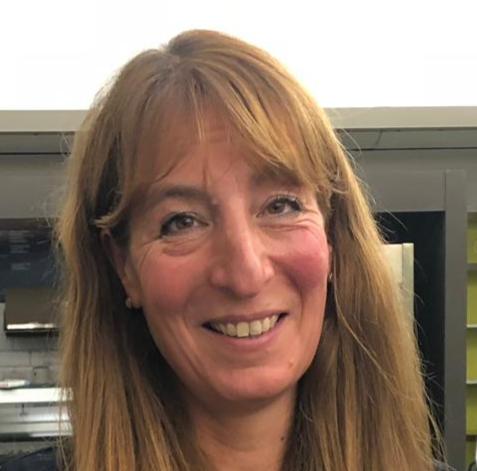Over the coming weeks, we’ll be bringing you blogposts from a range of different medical professionals and women with endometriosis to help bring you tips and advice during what we know is an incredibly challenging time.
This week we caught up with Endometriosis Specialist Nurse Debby Holloway to answer some of your questions about endometriosis. A huge thank you to everyone who submitted questions on our social media channels and to Debby for answering some of them.
Debby is a specialist endometriosis nurse at Guy’s and St Thomas’ hospital in London, and is the current chair of the Royal College of Nursing Women’s Health Forum.
Firstly Debby, could you explain what endometriosis is? The condition affects 1 in 10 women, yet new research from Endometriosis UK shows that over half of people still don’t know what it is.
Endometriosis is the name given to the condition where cells similar to those in the lining of the womb are found elsewhere in the body.
Each month these cells react in the same way to those in the womb, building up and then breaking down and bleeding. Unlike the cells in the womb that leave the body as a period, this blood has no way to escape. This can cause inflammation, pain and the formation of scar tissue.
How can it affect people?
It varies for each woman. Some have no symptoms, some mild and for some symptoms can affect daily living. Having constant pain can make everything more difficult and can lead to fatigue.
What symptoms should I look out for if I think I have endometriosis?
Typical symptoms can include painful periods and pain just before periods, painful sex, ongoing pelvic pain, pain when having bowels open or passing urine especially around periods. It can also cause fatigue and depression.
For a full list of symptoms, visit Endometriosis UK’s website:
https://www.endometriosis-uk.org/endometriosis-symptoms
I am worried about going to the doctor with symptoms. What can I expect?
It is worth taking a list of symptoms or using a symptom tracker/diary (download one via Endometriosis UK here: https://www.endometriosis-uk.org/sites/endometriosis-uk.org/files/files/Information/pain-symptoms-diary.pdf ) to show the patterns of pain. Your doctor should take a history and may examine you and may send you for a scan as well. They may suggest some simple measures for pain while you are under investigation or some hormones, it is worth looking at the NICE guidance to see what the care should be before you go https://pathways.nice.org.uk/pathways/endometriosis
What kind of help can I expect from the NHS for my condition? What are the pathways of care?
NICE have guidance for all women with suspected endometriosis which details the pathway and when and where you should be referred. In addition to this are specialist endometriosis centres - where more complex endo surgery is undertaken (view more at: https://www.bsge.org.uk/endometriosis-centres/) As period pain and pain is common not all women with this can be seen in a centre straight away or need to be seen in a centre and many women with can be manged within gynaecology clinics.
*NICE (The National Institute for Health and Care Excellence) have produced NICE Guidelines and Quality Standard Guidelines on what care should be provided for those with endometriosis in England, Scotland and Northern Ireland. As a patient, you can review these guidelines and raise them with your GP or consultant if you feel they are not being followed. For example – they specify that you should be referred by your GP directly to a specialist endometriosis centre if you have or may have endometriosis impacting your bowel, bladder or ureter. Endometriosis UK recognises that there is a long way to go to ensure these guidelines are followed, and we are continuing to lobby the Government on this. You can find out more about the NICE guidelines here: https://www.endometriosis-uk.org/NICE
If you live in Wales, the Welsh Government has adopted its own approach as part of the Government’s Women’s Health Taskforce Report on endometriosis in 2018. View more at: https://gov.wales/sites/endometriosis-uk.org/files/publications/2019-03…
There is no specialist endometriosis centre near me – does this mean I won’t have access to specialist care? So your GP can refer you to the nearest one (there may be long waiting lists). You can view a full list here: https://www.bsge.org.uk/centre/ or you may be seen locally at your local hospital.
I’ve been told I’m too young to have a laparoscopy – why is this the case?
There is no age limit on laparoscopy and it would depend on the symptoms, and the benefits from a laparoscopy verses the risks as it is an invasive surgical procedure, which is not without complications.
I’ve had a hysterectomy and I’m still experiencing symptoms – is there a pathway for people who have had a hysterectomy?
So women can have pain post hysterectomy, if the ovaries are left in then the hormones can stimulate any endometriosis left behind, some women will have chronic pain even when they have had the womb and ovaries removed due to some pain pathways, they should be referred to gynaecology and also to pain management centres.
What tips do you have to help me manage endometriosis? Everyone is different and you should discuss your management with your healthcare practitioner. My general advice is to take adequate pain killers with and before your period, do not wait till it is bad as they work better before, take general care of yourself and be kind to yourself. Try hormones if needed and be aware that not each one will suit also may have to try a few or a combination before you find something that works for you. Talk to your friends and work about it as it is not widely talked about and the more women who know about it the better and more employers who are aware then the better it is when time off is needed.


